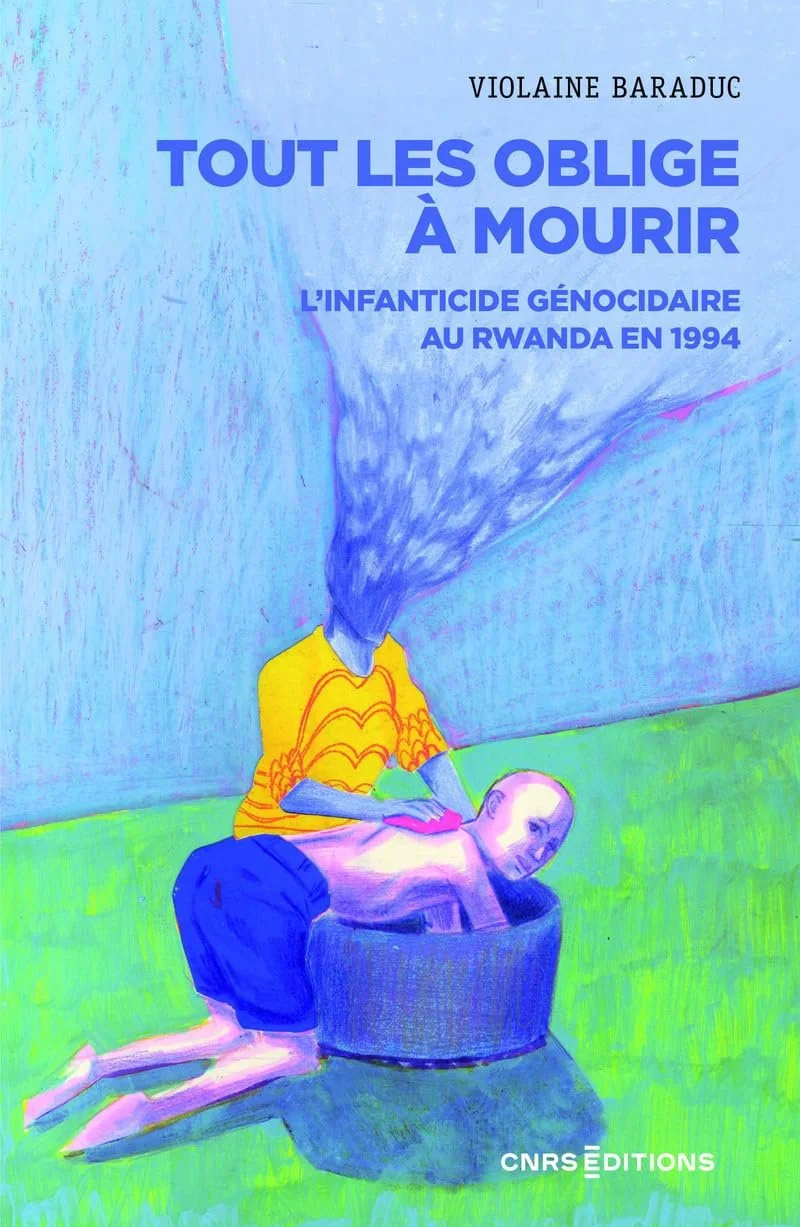FORCED TO DIE: GENOCIDAL INFANTICIDE IN RWANDA IN 1994
VIOLAINE BARADUC
(CNRS, 300 pages, 2024)
In 1994, the genocide perpetrated against the Tutsis of Rwanda did not spare the most intimate relationships. In some “mixed” families, grandparents, uncles, aunts, cousins, husbands, even fathers and mothers, attacked their relatives. After several weeks of massacres throughout the country, two Hutu peasant women, Béata Nyirankoko and Patricie Mukamana, resigned themselves to killing the children they had with their Tutsi husbands. How can we explain this radical reversal of the maternal bond?
Violaine Baraduc’s unprecedented investigation, based on interviews, judicial archives, and observations, gives voice to the two mothers and to various family members—both perpetrators and survivors. It questions the role of women and gender relations in the killings, and reveals some of the essential workings of the reversal of emotional and social ties at work during a genocide ordered by the state but massively executed by the population.
Finely attuned to the language of the testimonies and the crucial role of the translators, Forced to Die is a rigorous and impressive analysis that opens up stimulating avenues for better understanding and untangling the individual motivations and collective logics that can lead ordinary individuals to the act of killing. If infanticide may have been a marginal phenomenon, Violaine Baraduc defends the idea that it must be seen as “the epicenter of the genocidal phenomenon,” as its “most literal and cruelest illustration.” If infanticide is a paradigmatic crime of genocide, she suggests, it is also a paradigmatic crime of patriarchy.
Anthropologist and documentary filmmaker, Violaine Baraduc is the author of the thesis “Violences d’un autre genre: ethnographier les mémoires criminelles desprisonnières génocidaires du Rwanda” (2022), which has won several awards in France and abroad. She co-directed the acclaimed film A mots couverts about eight women who participated in the genocide (nominated for the Albert Londres Prize; recipient of the Grand Prize for Historical Documentary at the Rendez-vous de l’histoire à Blois in 2015 and the Images de Justice in 2016).

